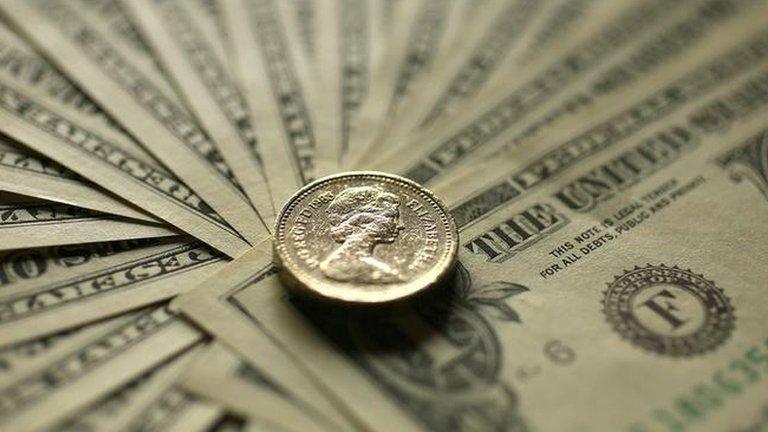Pound falls ahead of Theresa May Brexit speech
- Published
- comments
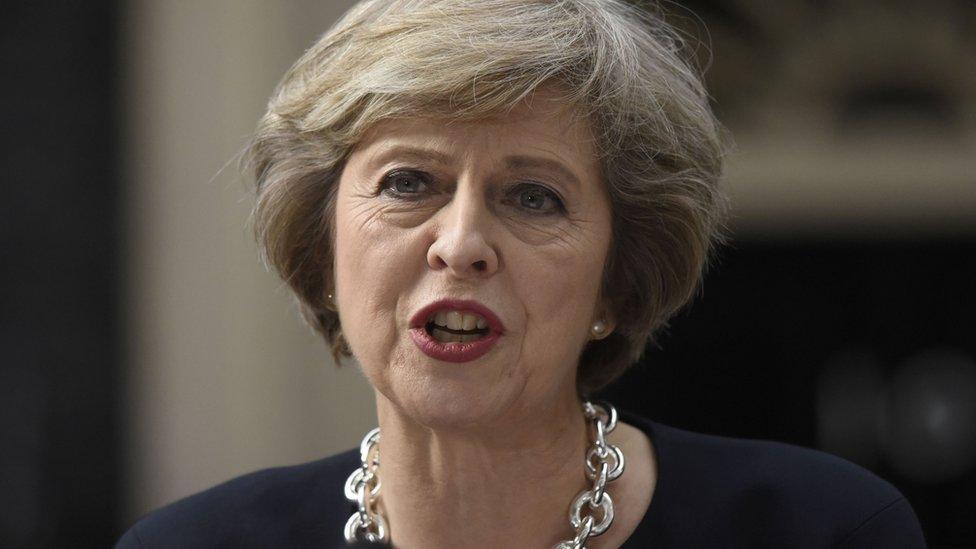
The pound has hit its lowest level for more than three months on reports Britain was set to quit the EU single market as part of its Brexit plans.
Sterling fell more than 1% to below $1.20 before recovering slightly.
The pound also sank to a two-month low against the euro, falling to 1.13 euros before edging up again.
Analysts said traders were reacting to reports that UK Prime Minister Theresa May would use a speech on Tuesday to signal a so-called "hard Brexit".
Reports have suggested she will signal pulling out of the EU single market and customs union, although Downing Street described this as "speculation".
Pound-dollar tourist rate at lowest since 1986
The pound has fallen about 20% against the dollar since June's EU referendum, to lows last regularly seen in 1985.
Much of that volatility has been due to uncertainty about the economic impact if the UK gives up its tariff-free access to the EU.
The pound lost ground against all major currencies except the Turkish lira, which is under pressure because of investors' concerns over the economic and political outlook there.
'Great for UK'
The pound's latest fall comes as US President-elect Donald Trump said in an interview with The Times, external that the fall in the pound was "great" for British business.
Mr Trump suggested his Scottish golf course in Turnberry had benefited from the fall in the value of sterling, and that "business is unbelievable in a lot of parts in the UK".
A weaker pound helps make UK firms more competitive abroad, but it also makes foreign holidays and imported goods more expensive.
While Mrs May has said she will trigger Article 50 by the end of March, starting the formal withdrawal from the EU, few details of the kind of deal she will seek have been revealed.
Several of Sunday's newspapers claimed Mrs May would this week outline a "hard Brexit" approach.
The currency movement, though, was "clearly another political drop for sterling", said Jasper Lawler, an analyst at London Capital Group.
"The pound is now back into flash crash territory," Mr Lawler added.
The flash crash on 7 October saw the pound drop to its lowest post-referendum level - below $1.19 - before recovering.
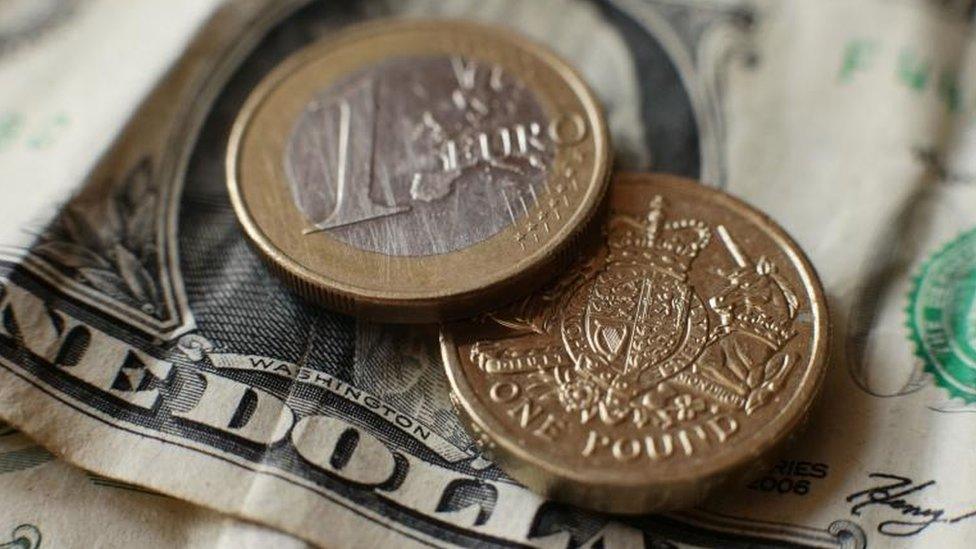
Reports of the UK leaving the single market are "like kryptonite" to traders who back the pound, said Kathleen Brooks, an analyst at City Index.
She said the drop had shown foreign exchange traders were "not confident that Theresa May can deliver the necessary clarity and confidence when she lays out her Brexit plans in a speech on Tuesday".
Even though Mrs May has been linked to a "hard Brexit" approach before, it is seen by many traders as a downside for the pound, and so every headline can "generate another wave of selling", Ms Brooks added.
Laura Lambie, senior investment director at Investec Wealth and Investment, told the BBC that Bank of America was forecasting the pound could fall to as low as $1.15.
"We have got a very, very busy week in terms of the reporting season," she said. "We've got the banks continuing to report, we've got Trump's inauguration at the end of the week, Janet Yellen speaking a couple of times and obviously we've got May's speech.
"There's a lot for the market to digest over the next five days, so I suspect the pound may well be a casualty of that," she added.
- Published16 January 2017
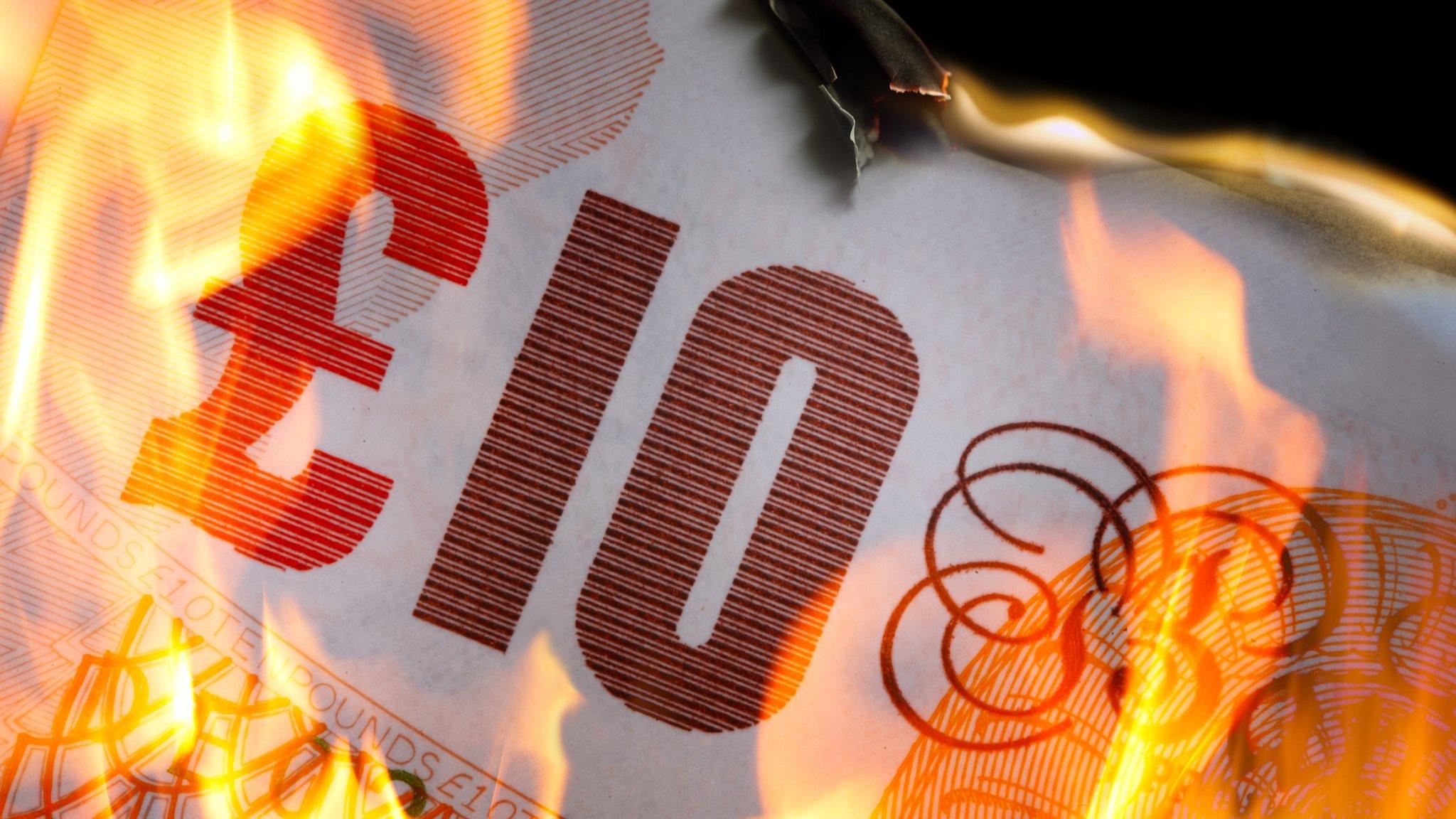
- Published16 January 2017

- Published15 January 2017
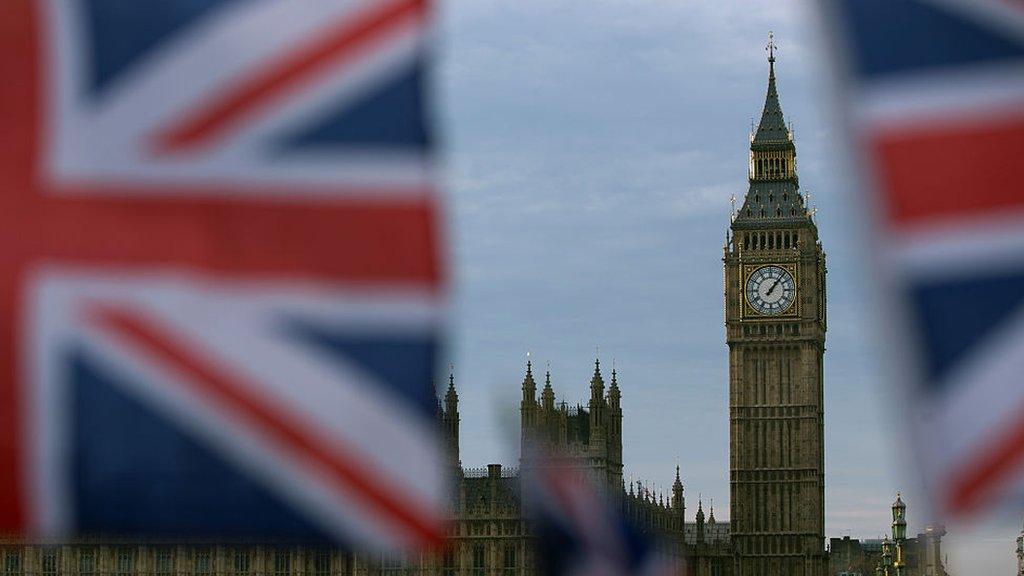
- Published14 August 2017
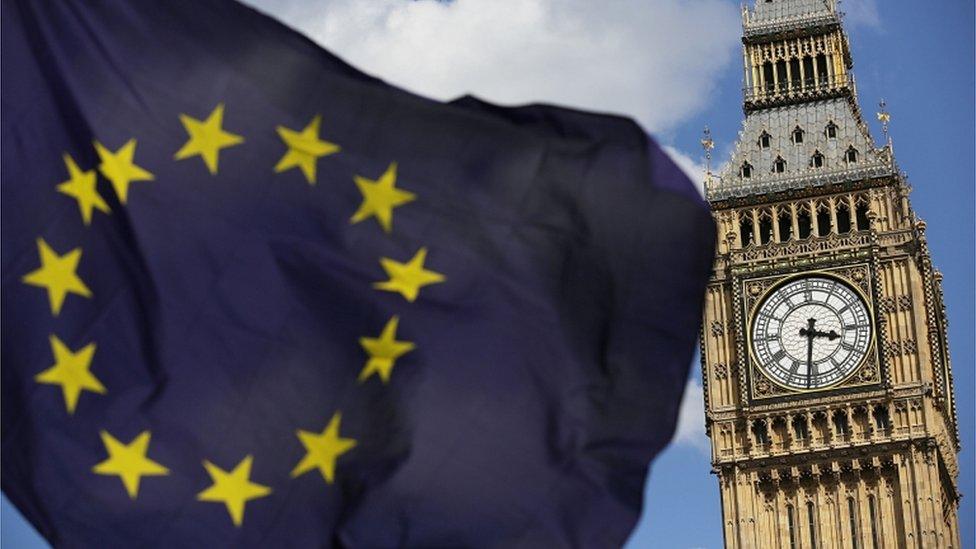
- Published16 January 2017
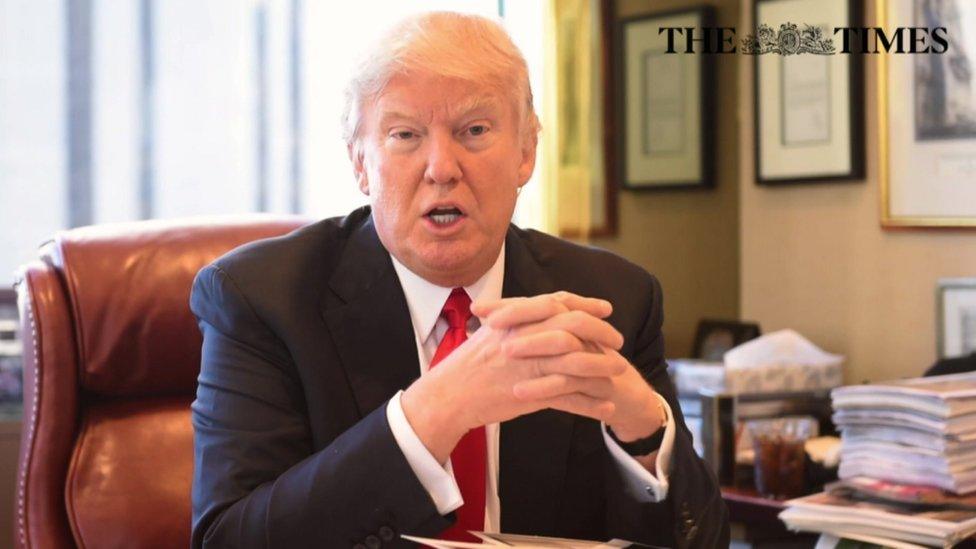
- Published13 January 2017
